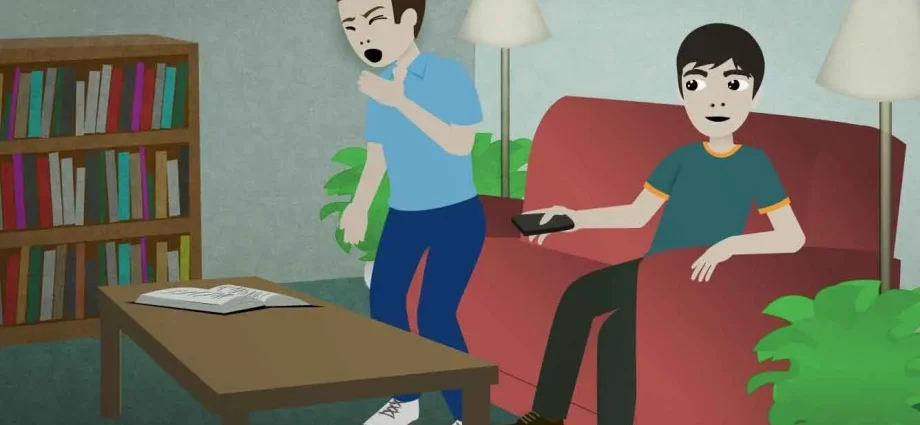Contents
Many of us, even without being “night owls” and not suffering from insomnia, regularly go to bed well after midnight. We find ourselves a thousand things to do before we go to bed, and in the morning we reproach ourselves for going to bed too late. How to explain this habit and how to change it?
“In the evenings, I always have a lot of classes,” says 36-year-old Svetlana. I read the mail, do the laundry, sort out the cupboards. If there is nothing to do, I take up a book or turn on the TV. But I love sleeping so much! But for some reason, I’m always stalling for time, just not to go to bed. ”
Familiar situation? Why do we put off going to bed?
I have a lot to do
We write the “last e-mail”, suddenly receive a response, answer it … and remember that we should go to bed when it is already dawn outside the window. “It seems to us that we don’t feel like sleeping, that we are still full of energy, because we drown out the signals that our body gives with the help of stimulants,” says family psychologist Inna Shifanova. – These include not only coffee and strong tea, but also luminous monitors – they all artificially support brain activity. Such a mode of life is often chosen by those whose family has cultivated the image of a business person who feels sorry for the time for rest, or a romantic creator-night owl.
I need time for myself
“But for many, the time before bed becomes the only “island” where you can be alone with your “I”. “Each of us has many responsibilities,” continues the family psychologist. – During the day, we play many roles: workers, parents, daughters and sons, wives and husbands… And only late in the evening the time finally comes when we belong to ourselves, we can reflect on our life or just do what we want, and not what that “should”. And the greater the shortage of personal time, the more we try to stretch this gap.
I’m scared
Before we fall asleep, the defense mechanisms of the psyche weaken. Because of this, fears can invade our consciousness. One of them is the fear of forgetting oneself, of losing one’s identity, psychoanalyst Virginie Meggle clarifies, emphasizing that in ancient mythology, Sleep is the brother of Death. “We can also be disturbed by the memory of childhood fears,” the psychoanalyst continues, “if our parents at one time failed to comfort and reassure us. The cause of anxiety can also be a long-term psychological trauma, for example, a scene of violence that a person once witnessed. A seemingly harmless event could also be traumatic – for example, when a child was sent to bed in the midst of a holiday, or he lost sight of his mother in a supermarket and felt despair and loneliness. By unconsciously avoiding these unpleasant experiences, we may unwittingly delay going to bed.
“I didn’t have the strength to go to bed in the evenings”
Victoria, 41 years old, nurse
Two years ago, after a divorce, I felt constantly tired, but in the evenings I didn’t have the strength to go to bed: I sat for hours just looking out the window. A friend who had a little son told me how she came up with a ritual for going to bed for him – quiet games, putting toys “on the side”, a fairy tale … And she advised me to “become a parent to myself” – start putting myself to bed. So I came up with a routine for myself: change into soft pajamas, remove makeup, fluff up a pillow … Over time, I got involved in my “game”, and when I added an hour for myself twice a week, I felt that I had returned to normal rhythm and come alive again.
What to do?
Take care of your body
Just as hunger tells us it’s time to eat, fatigue tells us to go to bed. Learn to listen to yourself and recognize the first signs of fatigue. In order not to miss the moment when you are ready for bed, firmly set an hour after which you will no longer read mail, watch TV and answer the phone.
Make time for yourself
Plan in advance an hour (or better two) a week, which you will devote entirely only to yourself and those activities that bring you joy. Taking a short break between finishing work and returning home – such as a slow walk – will also allow you to be alone with yourself. And try to find at least ten minutes for rest during the working day. Too much? Then at least five.
Calm down
To fully understand your fears and get rid of them, you need the help of a psychotherapist. You can also start taking care of yourself by playing the role of a “good parent”. If you don’t like falling asleep in the dark, get a small night light that won’t interfere with your sleep. Arrange for yourself a comfortable and warm bed in which you will feel cozy. And tell yourself at night in a whisper a few pleasant words, for example: “I love you, I care about you, I want you to be well.”










